48 items found: Search results for "introduction" in all categories x


January 23, 2018 | Data Engineering, DevOps
Machine Learning is a hot topic these days, as can be seen from search trends. It was the success of Deepmind and AlphaGo in 2016 that really brought machine learning to the attention of the wider community and the world at large.
Join us for the first installment of OpenCredo’s Summer training schedule. On the 14th and 15th of June we will be running our “Introduction to Agile Testing” course in Manchester.
Drawing on over 6 years of practical experience from the OpenCredo team, you will explore worked examples and learn clear lessons in test automation and agile development. The workshop is ideal for members of development teams working to integrate testing, as well as product owners and business analysts who need a better way of communicating their business objectives. The results will be clearer requirements, faster test feedback, and increased confidence in software quality.


October 1, 2015 | Data Engineering
Akka Streams, the new experimental module under Akka project has been finally released in July after some months of development and several milestone and RC versions. In this series I hope to gently introduce concepts from the library and demonstrate how it can be used to address real-life stream processing challenges.
Akka Streams is an implementation of the Reactive Streams specification on top of Akka toolkit that uses actor based concurrency model. Reactive Streams specification has been created by the number of companies interested in asynchronous, non-blocking, event based data processing that can span across system boundaries and technology stacks.


February 8, 2012 | Data Analysis, Data Engineering
Most of the important players in this space are large IT corporations like Oracle and IBM with their commercial (read expensive) offerings.
While most of CEP products offer some great features, it’s license model and close code policy doesn’t allow developers to play with them on pet projects, which would drive adoption and usage of CEP in every day programming.
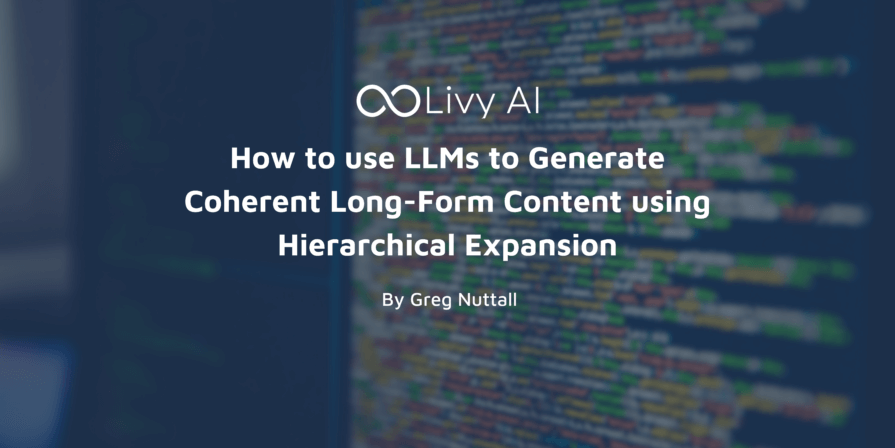
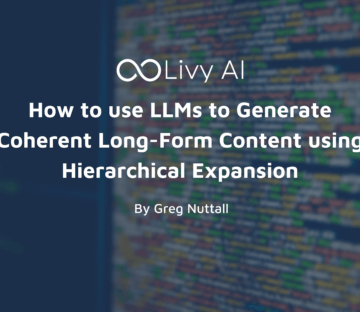
October 30, 2023 | Blog
As impressive as they are, Large Language Models (LLMs) face difficulties when creating long-form content, primarily due to token limitations and inconsistencies in the output over time.
Together with Livy.ai, we developed a “Hierarchical Expansion” method to address these challenges and better the quality, flow, and structure of the content produced. Read further to learn more!

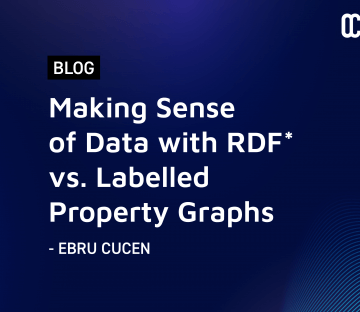
January 31, 2022 | Blog, Data Engineering
There are two camps of Graph database, one side is RDF, where they are strict with their format, and somewhat limited for their extensibility. The other side is LPG, where they can define labels to the relationships. With its recent extension, RDF now allows users to add properties, thus becoming RDF*. In this blog, Ebru explores the structural and performance differences between LPG and RDF*.


November 4, 2021 | Kubernetes
We always read that ‘security is everyone’s responsibility’. For any organisation, big or small, security should always be the primary concern—not a mere afterthought. In terms of Kubernetes, securing a cluster is challenging because it has so many moving parts and, apart from securing our Kubernetes environment, we also want to control what an end-user can do in our cluster.
To achieve these goals, we can start with the built-in features provided by Kubernetes like Role-Based Access Control (RBAC), Network Policies, Secrets Management, and Pod Security Policies (PSP). But we know these features are not enough. For example, we may want specific policies like ‘all pods must have specific labels’. And even if we have the policies in place, the next big question is how to enforce them on our Kubernetes cluster in an easy and repeatable manner.
In this blog post, we’ll address this challenge and other questions pertaining to OPA and how it can integrate into Kubernetes.
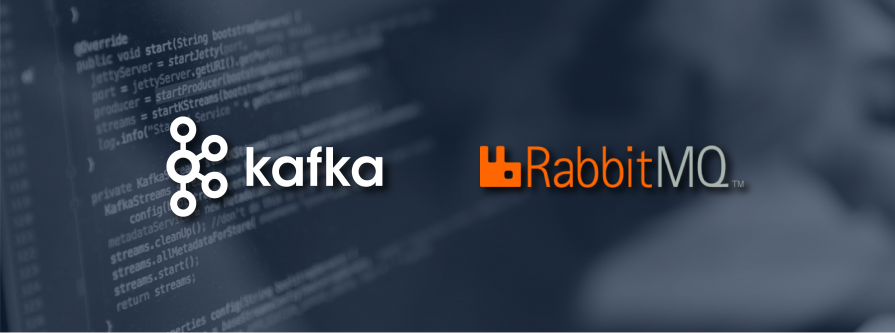
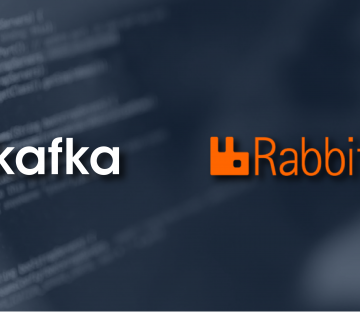
July 20, 2021 | Blog, Data Engineering, Kafka
Message and event-driven systems provide an array of benefits to organisations of all shapes and sizes. At their core, they help decouple producers and consumers so that each can work at their own pace without having to wait for the other – asynchronous processing at its best.
In fact, such systems enable a whole range of messaging patterns, offering varying levels of guarantees surrounding the processing and consumption options for clients. Take for example the publish/subscribe pattern, which enables one message to be broadcast and consumed by multiple consumers; or the competing consumer pattern, which enables a message to be processed once but with multiple concurrent consumers vying for the honour—essentially providing a way to distribute the load. The manner in which these patterns are actually realised however, depends a lot on the technology used, as each has its own approach and unique tradeoffs.
In this article we will explore how this all applies to RabbitMQ and Apache Kafka, and how these two technologies differ, specifically from a message consumer’s perspective.
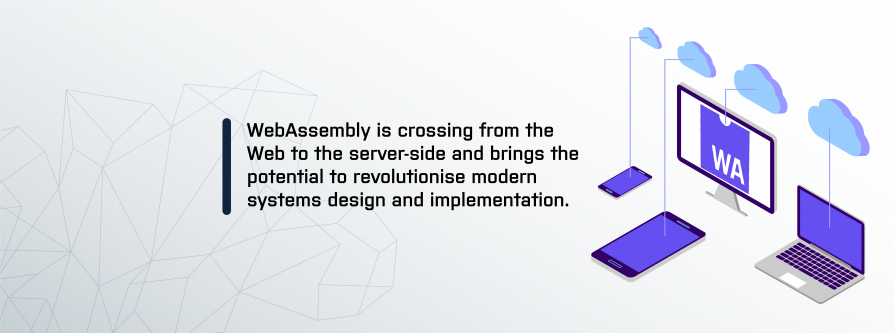
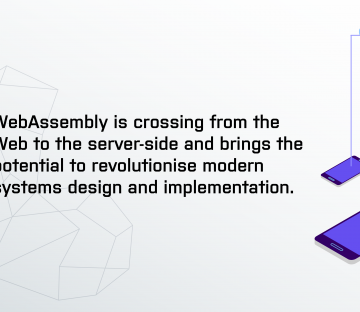
December 11, 2020 | Cloud, Cloud Native, Kubernetes, Microservices
“WebAssembly is a safe, portable, low-level code format designed for efficient execution and compact representation.” – W3C
In this blog, I’ll cover the different applications of Wasm and WASI, some of the projects that are making headway, and the implications for modern architectures and distributed systems.
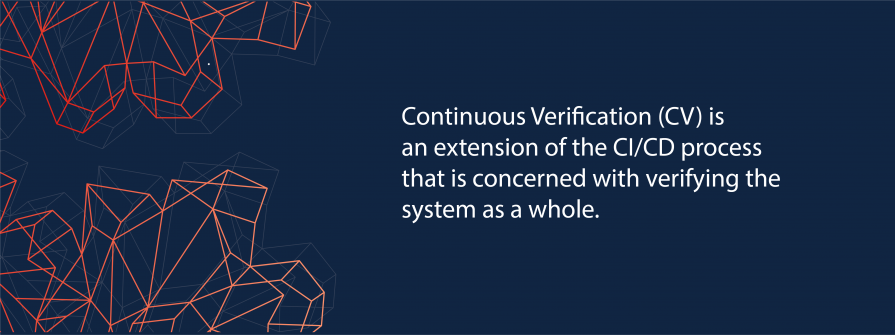
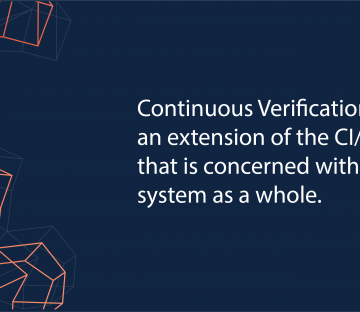
October 15, 2020
Continuous Verification is a term that is starting to pop up from time-to-time… but what does it mean? Well… according to Nora Jones and Casey Rosenthal, authors of O’Reilly’s Chaos Engineering books,
“Continuous verification (CV) is a discipline of proactive experimentation, implemented as tooling that verifies system behaviors. This stands in contrast to prior common practices in software quality assurance, which favor reactive testing, implemented as methodologies that validate known properties of software. This isn’t to say that prior common practices are invalid or should be deprecated. Alerting, testing, code reviews, monitoring, SRE practices, and the like—these are all great practices and should be encouraged”
Over the course of this post, we will unpack this statement: to understand what is behind it and what it might mean for your development process.

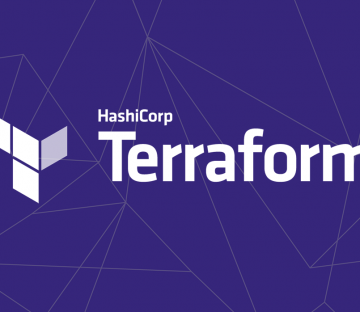
October 3, 2019 | Cloud, DevOps, Hashicorp, Open Source
Terraform 0.12 in recent years has emerged as the de facto standard with regards to defining and managing cloud infrastructure. It is one of four primary tools offered by HashiCorp, (Terraform, Vault, Consul and Nomad) and underpins the workflows that make up their Cloud Operating Model.
Since its first release in 2014, the wider Terraform community has embraced frequent releases and this past year has been no exception. HashiCorp announced the release of Terraform 0.12 in May 2019 and as of writing this post the official release is 0.12.9.


Writing your own Kafka source connectors with Kafka Connect. In this blog, Rufus takes you on a code walk, through the Gold Verified Venafi Connector while pointing out the common pitfalls


February 20, 2019 | DevOps, Hashicorp, Kafka, Open Source
Creating and managing a Public Key Infrastructure (PKI) could be a very straightforward task if you use appropriate tools. In this blog post, I’ll cover the steps to easily set up a PKI with Vault from HashiCorp, and use it to secure a Kafka Cluster.


February 5, 2019 | Cloud Native, DevOps, Kubernetes, Microservices, Open Source
While Prometheus has fast become the standard for monitoring in the cloud, making Prometheus highly available can be tricky. This blog post will walk you through how to do this using the open source tool Thanos.
Thanks to our hosts Mintel, the HashiCorp User Group is back on the 14th of August with speakers from applyingAgile and Grafana labs.


May 16, 2018 | Microservices
To identify service boundaries, it is not enough to consider (business) domains only. Other forces like organisational communication structures, and – very important – time, strongly suggest that we should include several other criteria in our considerations.


April 18, 2018 | Microservices
Quite a few of the anti-patterns we observe today on microservices projects are strongly related to how people approach the problem. Given their nature, these anti-patterns tend to be deeply ingrained and self-sustaining. Addressing them starts with increased awareness and by changing ways of approaching the problem, rather than by the introduction of yet another technical tool or framework.


April 5, 2018 | Cloud, DevOps, Hashicorp, Terraform Provider
Google Cloud Functions is the Google Cloud Platform (GCP) function-as-a-service offering. It allows you to execute your code in response to event triggers – HTTP, PubSub and Storage. While it currently only supports Node.js code for execution, it has proved very useful for running low-frequency operational tasks and other batch jobs in GCP.


February 6, 2018 | Cloud
Among the many announcements made at Re:Invent 2017 was the release of AWS Privatelink for Customer and Partner services. We believe that the opportunity signalled by this modest announcement may have an impact far broader than first impressions suggest.


October 24, 2017 | Data Engineering
Cockroach Labs, the creators of CockroachDB are coming to London for the first time since their 1.0 GA Release in May 2017. They will be taking time to talk about “The Hows & Whys of a Distributed SQL Database” at the Applied Data Engineering meetup, hosted and run by us here at OpenCredo.
We have been interested in CockroachDB for a while now, including publishing our initial impressions of the release on our blog. We thought this would be the perfect time to do a bit of a Q&A before the event! I posed Raphael Poss, a core Software Engineer at Cockroach Labs a few questions.
We are excited to be hosting the first Muon User Group at our London office for an Intro to Muon – How to build Polyglot Message and Event Microservices!
Join Daniel Bryant and Antonio Cobo at DevOpsCon 2017; The Conference for Continuous Delivery, Microservices, Docker, Clouds & Lean Business! DevOpsCon will be running from the 12th-15th of June, and offers you a glimpse at popular topics such as innovative infrastructure and modern lean business culture through hands-on workshops, sessions and keynotes.
We are pleased to announce that we are event partners of The National DevOps Conference 2017, where our senior consultants Nicki Watt and Rafal Gancarz will also be presenting. The annual National DevOps Conference is the event for those seeking to bring lean principles into the IT value stream and incorporate DevOps and continuous delivery into their organisation. The conference is targeted towards C-level executives interested in learning about the professional movement and its cultural variations that assist, promote and guide a collaborative working relationship between Development and Operations


March 23, 2017 | Cassandra, Data Analysis, Data Engineering
In recent years, Cassandra has become one of the most widely used NoSQL databases: many of our clients use Cassandra for a variety of different purposes. This is no accident as it is a great datastore with nice scalability and performance characteristics.
However, adopting Cassandra as a single, one size fits all database has several downsides. The partitioned/distributed data storage model makes it difficult (and often very inefficient) to do certain types of queries or data analytics that are much more straightforward in a relational database.
We are excited to announce that we are sponsoring the Linuxing In London Meetup this month! Brett Mack, DevOps Consultant will be doing an introduction to userland rootkits, software engineer at notonthehighstreet, Nick Jackson, will be speaking about Swift coding on Linux and organiser of Linuxing In London, Brian Byrne will give a quick talk on Raspberry Pi.


February 13, 2017 | Data Engineering
One of the stated intentions behind the design of Java 8’s Streams API was to take better advantage of the multi-core processing power of modern computers. Operations that could be performed on a single, linear stream of values could also be run in parallel by splitting that stream into multiple sub-streams, and combining the results from processing each sub-stream as they became available.


October 13, 2016 | Data Analysis
In Lisp, you don’t just write your program down toward the language, you also build the language up toward your program. As you’re writing a program you may think “I wish Lisp had such-and-such an operator.” So you go and write it. Afterward you realize that using the new operator would simplify the design of another part of the program, and so on. Language and program evolve together…In the end your program will look as if the language had been designed for it. And when language and program fit one another well, you end up with code which is clear, small, and efficient – Paul Graham, Programming Bottom-Up
The London Mesos User Group is back – Join us on the 21st of September! London Mesos User Group is back after the summer break, taking place on the 21st of September. This time around, Cloudfare will be hosting the meetup at the office in London and will also be providing the beers and pizza! Agenda: […]


July 8, 2016 | Microservices
OpenCredo recently co-organised the first Microservices Manchester event with OliverBernard recruitment, and it was a resounding success. Over 100 people showed up at the Victoria Warehouse near Manchester’s trendy Salford Quays for a day discussing the realities of implementing microservice systems.


July 3, 2016 | DevOps
Several of us from the OpenCredo team were in attendance at the inaugural EU edition of the DevOps Enterprise Summit conference. We have been big fans of the two previous US versions, and have watched the video recordings of talks (2014, 2015) with keen interest as many of our DevOps transformation clients are very much operating in the ‘enterprise’ space.


March 3, 2016 | Software Consultancy
In this post, I’ll be sharing some React/Redux boilerplate code that Vince Martinez and I have been developing recently. It’s primarily aimed at developers who are familiar with the React ecosystem, so if you are new to React and/or Redux, you might like to have a look at Getting Started with React and Getting Started with Redux.


January 26, 2016 | Data Engineering
In this second post about Hazelcast and Spring, I’m integrating Hazelcast and Spring-managed transaction for a specific use case: A transactional Queue. More specifically, I want to make the message polling, of my sample chat application, transactional.
Join us at the second Kubernetes London meetup! There will be refreshments on arrival, amazing speakers, and breakout and network sessions.
Join Daniel for a brief introduction to the topic of microservices, and also a tour of the nastiest sins (anti-patterns) he has seen in his journey as a consultant on the 6th of April at BCS London.


December 1, 2015 | Software Consultancy
This post introduce some of the basic features of Hazelcast, some of its limitations, how to embed it in a Spring Boot application and write integration testings. This post is intended to be the first of a series about Hazelcast and its integration with Spring (Boot). Let’s start from the basics.


November 25, 2015 | Microservices
In May a 1.0 release of RAML (RESTful API Markup Language) has been announced delivering a few much welcome additions in the RAML 1.0 specification. This major release marks an important milestone in the evolution of RAML and indicates the team behind the specification is confident this release delivers the comprehensive set of tools for developing RESTful APIs. I’ve been using RAML 0.8 for several months now and have enjoyed the simplicity and productivity it offers for designing and documenting APIs. I must say I’m quite pleased with the changes introduced in the new release and would like to review those I consider particularly useful.


News | November 25, 2015


November 24, 2015 | DevOps, Microservices
It was once again a privilege to present at the annual ‘muCon 2015‘ microservices conference held in London (at the shiny new Skillsmatter CodeNode venue). Based on feedback fro talks I gave earlier in the year, I presented a completely new version of my ‘The Business Behind Microservices‘ talk, which focuses on the organisational and people side of implementing a microservice-based application.


November 3, 2015 | Software Consultancy
My JavaOne experience was rather busy this year, what with three talks presented in a single day! The first of these talks “Debugging Java Apps in Containers: No Heavy Welding Gear Required” was delivered with my regular co-presenter Steve Poole, from IBM, and we shared our combined experiences of working with Java and Docker over the past year.


October 31, 2015 | Microservices
Over the past few weeks I’ve been writing an OpenCredo blog series on the topic of “Building a Microservice Development Ecosystem”, but my JavaOne talk of the same title crept up on me before I managed to finish the remaining posts. I’m still planning to finish the full blog series, but in the meantime I thought it would be beneficial to share the video and slides associated with the talk, alongside some of my related thinking. I’ve been fortunate to work on several interesting microservice projects at OpenCredo, and we’re always keen to share our knowledge or offer advice, and so please do get in touch if we can help you or your organisation.


October 18, 2015 | Cloud, DevOps
Last week Steve Poole and I were once again back at the always informative JAX London conference talking about DevOps and the Cloud. This presentation built upon our previous DevOps talk that was presented last year, and focused on the experiences that Steve and I had encountered over the last year (the slides for our 2014 “Moving to a DevOps” mode talk can be found on SlideShare, and the video on Parleys).
![Microservice Platforms: Some Assembly [Still] Required. Part Two](https://opencredo.com/wp-content/uploads/2018/10/banner-services-895x196.jpg)
![Microservice Platforms: Some Assembly [Still] Required. Part Two](https://opencredo.com/wp-content/uploads/2018/10/banner-services-360x312.jpg)
September 20, 2015 | Microservices
Over the past five years I have worked within several projects that used a ‘microservice’-based architecture, and one constant issue I have encountered is the absence of standardised patterns for local development and ‘off the shelf’ development tooling that support this. When working with monoliths we have become quite adept at streamlining the development, build, test and deploy cycles. Development tooling to help with these processes is also readily available (and often integrated with our IDEs). For example, many platforms provide ‘hot reloading’ for viewing the effects of code changes in near-real time, automated execution of tests, regular local feedback from continuous integration servers, and tooling to enable the creation of a local environment that mimics the production stack.




November 14, 2013 | Cassandra
Cassandra 2.0 was released in early September this year and came with some interesting new features, including “lightweight transactions” and triggers.
Despite the rising interest in the various non-relational databases in recent years, there are still numerous use-cases for which a relational database system is a better choice. The latest major release of Cassandra (version 2.0) provides some interesting features that aim to close this gap, and offers its fast and distributed storage engine enhanced with new options that will make users’ lives easier.


February 25, 2013 | Neo4j
As part of our work, we often help our customers choose the right datastore for a project. There are usually a number of considerations involved in that process, such as performance, scalability, the expected size of the data set, and the suitability of the data model to the problem at hand.
This blog post is about my experience with graph database technologies, specifically Neo4j. I would like to share some thoughts on when Neo4j is a good fit but also what challenges Neo4j faces now and in the near future.




June 3, 2011 | Neo4j
Neo4J is one of the first graph databases to appear on the global market. Being open source, in addition to its power and simplicity in supporting graph data model it represents good choice for production-ready graph database.
However, there has been one area I have struggled to get good-enough performance from Neo4j recently – super nodes.